The Master of Science “Biodiversity” represents an interdisciplinary degree programme, which is jointly operated by two universities: Ruhr University Bochum and University of Duisburg-Essen. International Bachelor students from all fields of biological sciences can apply for this innovative and strongly research-oriented MSc programme.
A team of 11 professors with their staff members cover the complex and diverse topics within the field of biodiversity research. Our programme offers a broad range of opportunities for interdisciplinary and specialized research modules for all Masters candidates. Compared to other study programmes, the “MSc Biodiversity” in Bochum and Essen stands out in particular due to its innovative inter- and transdisciplinary curriculum. Basic research centered in this degree programme ranges from eco-evolutionary modelling, eukaryotic microbiology, parasitology and biodiversity monitoring to more applied aspects of ecological assessment and restoration.
Our Masters programme offers a multifaceted training of the enrolled students and will prepare them for a successful career in academia, public environmental agencies and offices as well as for private-sector careers in the field of biology, biodiversity, ecological assessment and more.
We invite Bachelor students with a background in biology, ecology, environmental sciences or related subjects to apply for the Master's programme until the 15th of July.
Hey there, thanks for your interest in our study programme.
Here you can find out more information on the topics of our programme and the training options we provide.
Our degree programme is organized in modules and has a duration of two years (4 semesters) involving a blend of coursework, individual research projects, and multiple platforms for interacting with other scientists.
As a Masters student, you’ll acquire a broad theoretical background and basic knowledge in the fields of Ecology, Evolution and Biodiversity within the first two semesters. Beyond this, you will be trained in typical field and laboratory work as well as modern molecular methods and “state of the art technologies”. During the last semesters, you will have the opportunity to work on an international research project with one of the various partner institutions in different countries. The chosen practical project can further be used as a basis for the master's project and form a component of the Masters thesis.
During the programme, you will become familiar with various techniques and approaches including field experiments, analysis of animal behaviour, mathematical modelling and modern genetic methods. You’re invited to check the detailed descriptions of the various courses and keep yourself up to date on upcoming deadlines during the semesters.
Please contact the student council (RUB or UDE) or any faculty member (RUB or UDE) if you have questions or need help finding the information you need about our programme.
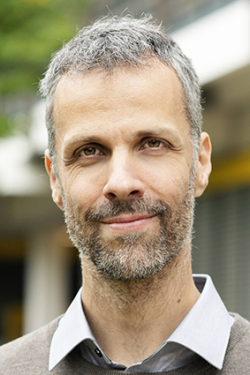
Our research group works with algae, mainly diatoms, a microalgal group important as primary producers and as bioindicators both in freshwater and marine ecosystems. We combine experimental, molecular and microscopic approaches to address evolutionary, ecological and ecophysiological questions related to speciation, environmental adaptation, and diatom ecology in freshwater habitats under strong anthropogenic effects. Besides, we develop and apply digital microscopy and computer vision methods for diatom analyses.
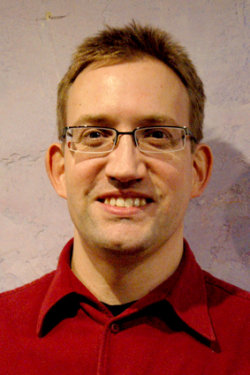
Our research focuses on the biodiversity, ecology, and evolution of protists. Using modern approaches of biogeography, phylogenetic analysis and population genetics, we study microbe species at the organismal and molecular levels. Since our work is highly interdisciplinary we are active in various multidisciplinary research networks and collaborations, cooperating closely with colleagues in Germany and internationally.
Prof. Dr. Jens Boenigk
University of Duisburg-Essen
Room. S05 V05 E32
Phon. +49 201 183 3118/4302
E-Mail
experience more: Biodiversity
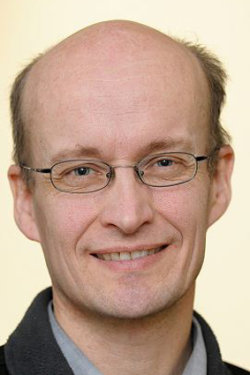
Our research is focused on the assessment of fresh water ecosystems and their biodiversity patterns. Next to the influence of hydromorphological degradation e.g. on assemblage composition we investigate the impact of human activity on aquatic ecosystems and their interactions with the environment, ranging from ecotoxicological studies to the monitoring of river restorations and studies on climate change in freshwater ecosystems.
Prof. Dr. Daniel Hering
University of Duisburg-Essen
Room. S05 T03 B25
Phon. +49 201 183 3084
E-Mail
experience more: Aquatic Ecology
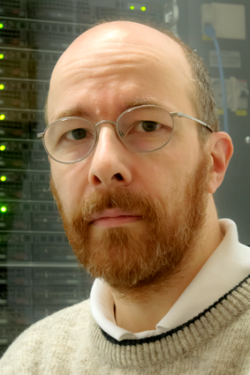
My research group focuses on computational modelling of evolution and biodiversity at the molecular level with applications to viruses, antibodies, and microbes. In our research we bring together the unifying aspects of biology by discovering the mechanics of evolution at the molecular level.
Prof. Dr. Daniel Hoffmann
University of Duisburg-Essen
Room. S03 S03 A26
Phon. +49 201 183 4391
E-Mail
experience more: Bioinformatics
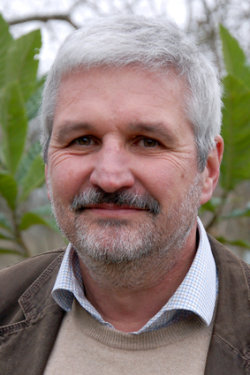
A main focus is on orientation and communication behaviour in social bees, ants and termites. We are also interested in the biology and control of honeybee parasites and investigate side-effects of pesticides on flower-visiting insects. In the field of biology education we study learning processes in highschool and university students using physiological approaches.
Prof. Dr. Wolfgang Kirchner
Ruhr University Bochum
Room. NCDF 06/494
Phon. +49 234 32 29011
E-Mail
experience more: Applied Entomology
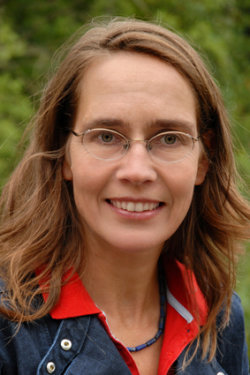
Adaptive traits enable organisms to thrive under local environmental conditions, thus delineating their ecological niche. Based on phenotypically contrasting individuals, my research group works to understand the physiological, biochemical and genetic differences underlying phenotypic diversity, as well as to analyze its ecological roles and evolutionary dynamics. Therefore, we combine laboratory-based physiology, imaging, molecular biology, and genetics with fieldwork and computational analysis of data from high-throughput nucleic acid sequencing.
Prof. Dr. Ute Krämer
Ruhr University Bochum
Room. ND 3/30
Phon. +49 234 32 28004
E-Mail
experience more: Plant physiology
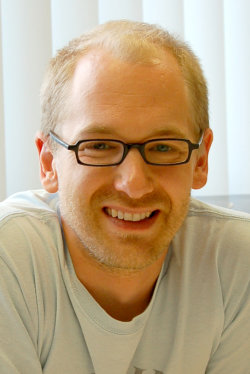
Our research group studies the impacts of environmental stressors on freshwater invertebrate communities and populations. We use various approaches such as classical taxonomy, population genetics, metabarcoding and environmental DNA assays as well as phylogenetic approaches to assess genetic and species diversity and then to identify impacts of stressors at population or community level. A particular strength of our group is the upscaling of high-throughput genetic methods to assess and monitoring biodiversity using DNA-based approaches. We try to scale and speed up this process to document life on our changing planet as detailed as possible - with the aim to more efficiently protect and restore biodiversity.
Prof. Dr. Florian Leese
University of Duisburg-Essen
Room. S05 V05 F06
Phon. +49 201 183 4053
E-Mail
experience more: Aquatic Ecosystem Research
Twitter: @leeselab
Instagram: https://www.instagram.com/leeselab/
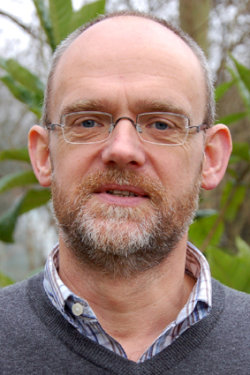
Our research interests cover a broad spectrum of topics ranging from biodiversity aspects of macroinvertebrates and fish and their parasites to adverse effects of pollutants on aquatic organisms. We are specifically interested in the question how different simultaneously occurring stressors interact. Applied methods comprise classical morphological, molecular and chemical techniques followed by thorough statistical analyses.
Prof. Dr. Bernd Sures
University of Duisburg-Essen
Room. S05 T03 B29
Phon. +49 201 183 2617
E-Mail
experience more: Aquatic Ecology
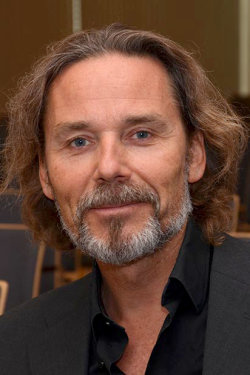
Our research interests lie in the areas of Ecology, Evolution and Biodiversity, ranging from marine to freshwater systems covering a species range from protists to vertebrates. A major topic is the study of phenotypic plasticity in predator-prey-model-systems, which is central to the research on how traits are formed by the interaction of genome and environment. Our research integrates e.g. behavioral studies, biochemical analyses and functional morphological comparisons. Additionally, we are working on research topics in the fields of molecular phylogeny, phylogeography and population genetics.
Prof. Dr. Ralph Tollrian
Ruhr University Bochum
Room. NDEF 05/754
Phon. +49 234 32 24998
E-Mail
experience more: Animal Ecology, Evolution and Biodiversity
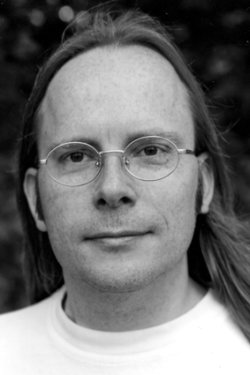
We uncover the processes that promote recovery of damaged ecological communities. We study the causes and consequences of biodiversity itself and use experiments, field work and ecological modelling to explain what mechanisms maintain the still brimming diversity of interacting animals and plants, in both terrestrial and aquatic communities.
Feel welcome to contact me for more information.
Prof. Dr. Matthijs Vos
Ruhr University Bochum
Room. NDEF 05/747
E-Mail
experience more: Animal Ecology, Evolution and Biodiversity
Prof. Dr. Matthijs Vos
Ruhr University Bochum
Office: NDEF 05/747
Universitätsstr. 150
44801 Bochum
E-Mail
Prof. Dr. Jens Boenigk
University of Duisburg-Essen
Office: S05 V05 E32
Universitätsstr. 5
D-45117 Essen
Phone: +49 201 183 3118
E-Mail
Consultation: prior arrangement
Dr. Nadine Ruchter
Study program advisor
University of Duisburg-Essen
Office: S05 R03 H07
E-Mail
Consultation hours:
Tue: 1:00 pm to 2:30 pm (in office)
Wed: 9:00 am to 11:00 am (online, please book appointment at
https://moodle.uni-due.de/course/view.php?id=7830#section-2)